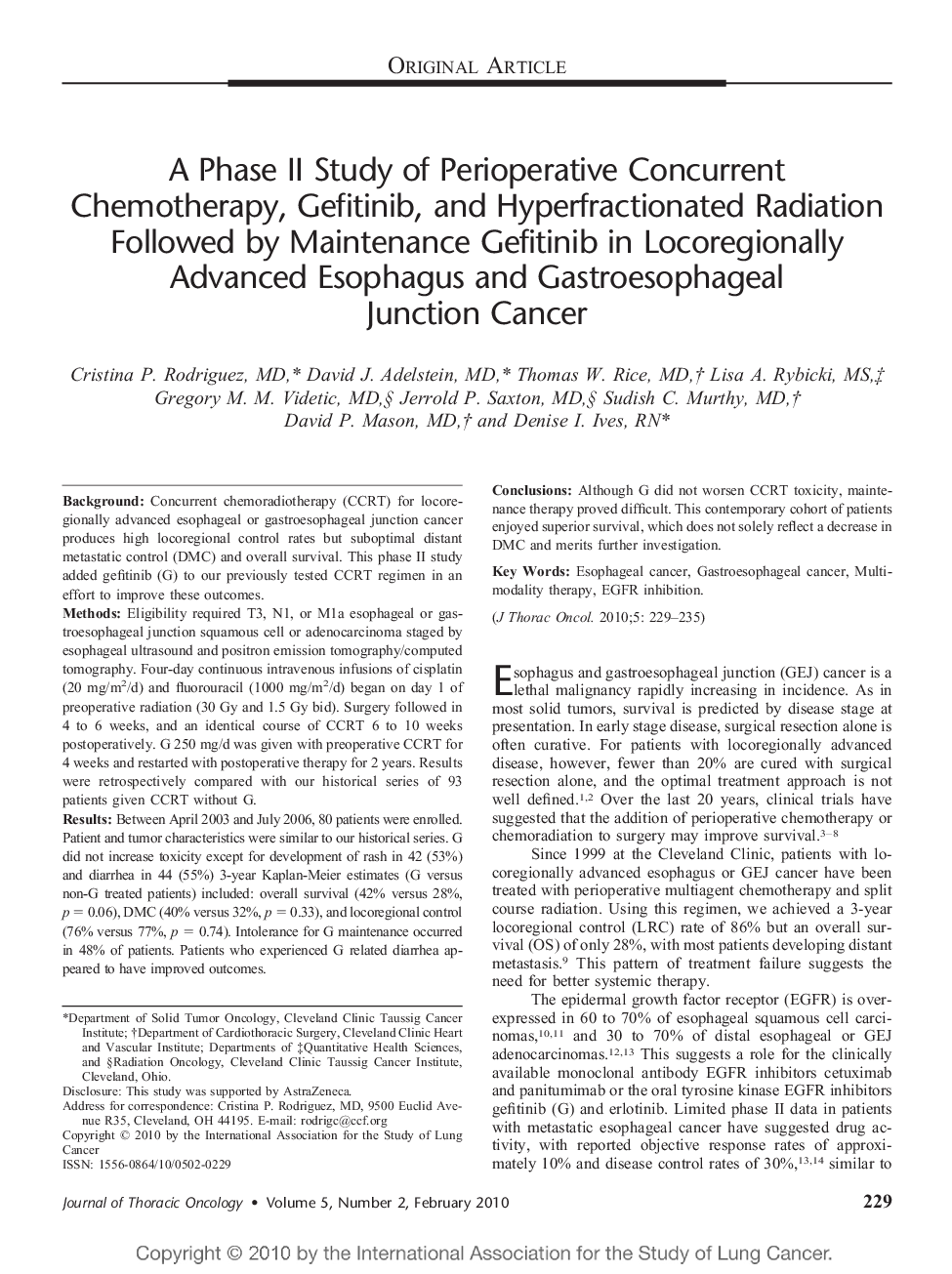| Article ID | Journal | Published Year | Pages | File Type |
|---|---|---|---|---|
| 3991053 | Journal of Thoracic Oncology | 2010 | 7 Pages |
BackgroundConcurrent chemoradiotherapy (CCRT) for locoregionally advanced esophageal or gastroesophageal junction cancer produces high locoregional control rates but suboptimal distant metastatic control (DMC) and overall survival. This phase II study added gefitinib (G) to our previously tested CCRT regimen in an effort to improve these outcomes.MethodsEligibility required T3, N1, or M1a esophageal or gastroesophageal junction squamous cell or adenocarcinoma staged by esophageal ultrasound and positron emission tomography/computed tomography. Four-day continuous intravenous infusions of cisplatin (20 mg/m2/d) and fluorouracil (1000 mg/m2/d) began on day 1 of preoperative radiation (30 Gy and 1.5 Gy bid). Surgery followed in 4 to 6 weeks, and an identical course of CCRT 6 to 10 weeks postoperatively. G 250 mg/d was given with preoperative CCRT for 4 weeks and restarted with postoperative therapy for 2 years. Results were retrospectively compared with our historical series of 93 patients given CCRT without G.ResultsBetween April 2003 and July 2006, 80 patients were enrolled. Patient and tumor characteristics were similar to our historical series. G did not increase toxicity except for development of rash in 42 (53%) and diarrhea in 44 (55%) 3-year Kaplan-Meier estimates (G versus non-G treated patients) included: overall survival (42% versus 28%, p = 0.06), DMC (40% versus 32%, p = 0.33), and locoregional control (76% versus 77%, p = 0.74). Intolerance for G maintenance occurred in 48% of patients. Patients who experienced G related diarrhea appeared to have improved outcomes.ConclusionsAlthough G did not worsen CCRT toxicity, maintenance therapy proved difficult. This contemporary cohort of patients enjoyed superior survival, which does not solely reflect a decrease in DMC and merits further investigation.
